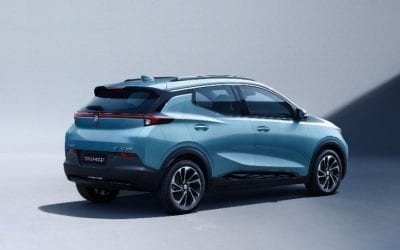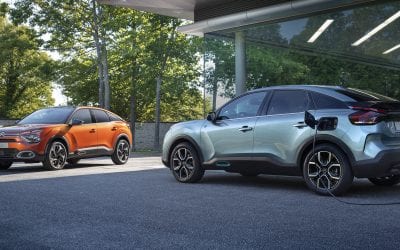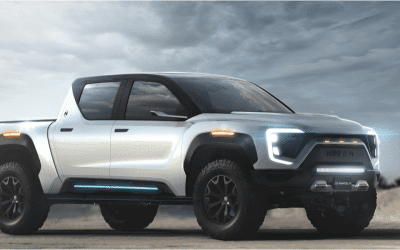wattEV2buy explores the CHJ Automotive
electric car strategy and list the CHJ EV models, news, and sales as it
vies for a position in the fast-growing EV market. Co-founded by Kevin Shen and Li Xiang
(Autohome and NextEV) the CHJ Automotive electric car strategy is the
develop an ultra-compact EV for city use priced below $8,000. The
initial launch date was set for March 2018. Central to the design of the
smart lookalike EV is CHJ Auto’s battery swapping technology which
opens up an annuity income stream for the company from the sale of its
vehicles. The CHJ SEV is equipped with not one but two batteries. CHJ
Auto is also planning a pure electric SUV and a range-extended version
of it, using similar technology as the BMW i3 REx. CHJ Auto is also one of Baidu, the Chinese
equivalent of Google, vehicle manufacturing partners for its
self-driving car program – Project Apollo. CHJ Auto and Chinese
raid-hailing company, Didi Chuxing, entered into a JV to develop and
build EVs in March 2018. Founded in 2015, CHJ Automotive raised its
starting capital in an Angel round from Future Capital. CHJ raised a
further ¥780 million in 2016 through a round A fundraising from the lead
investor the LEO Group, a machinery maker listed on the Shenzhen
exchange and Source Code Capital, Changzhou Wujin Hongtu Venture Capital
and Future Capital. In 2018 CHJ raised ¥3 billion in a round B
fundraising led by Matrix Partners China, a new EV fund managed by
the Shougang Fund, the investment vehicle for state-owned steel
company Shougang Group bringing the total investment in the CHJ to
nearly $1 billion (¥5.75 billion).
In my Week 29 Top 5 EV newsletter, I reported that CHJ Automotive (“Leading Ideal”) filed a prospectus to raise a $100 million on the NASDAQ. The company floated its shares on the 30th of July under the stock code “Li” at $11.5, which saw it raise over $1 billion. The price closed up 43.13% on the day at $16.46, giving it a market cap of $13.917 billion, slightly lower than its compatriot, NIO’s US$14.42 billion market value. The company plans to bring a second large SUV to market in 2022 and further plans to develop mid and high-end SUVs priced between 150,000 and 500,000 yuan. Like Tesla, Leading Ideal has also adopted a direct sales model and had 700 sales and service personnel 21 retail stores, 18 distribution centers, and 17 service centers throughout China, enough to support a sales target of 100,000 vehicles.
CHJ Automotive's EV brand, Leading Ideal Motors, submitted a prospectus to the United States SEC for an IPO on the NASDAQ. The Chinese EV startup is targeting to raise $100 million and have the stock code “LI.” The funds raised will be mainly used for new product development, capital expenditure, including production equipment, and working capital. The financial information in the prospectus shows that the startup showed a net loss of US$344 million in 2019 and US$10.89 million for Q1 2020. Leading Ideal holds cash and cash equivalents of US$149 million. The shareholding structure is divided into two classes of shareholding, Class A shares, and Class B shares. Class A shares correspond to 1 vote, and Class B shares correspond to 10 votes. Class A shares cannot be converted into Class B shares, and Class B shares can be converted into Class A shares. Currently, CEO and founder Li Xiang is the largest shareholder, holding 115,812,080 Class A shares, 240,000,000 Class B shares, 25.1% of the shares, and 70.3% of the voting rights. Wang Xing and Meituan hold 332,664,073 shares Class A shares hold 23.5% of the shares and have 9.3% of the voting rights.
CHJ Automotive announced that it will open 13 retail stores for its new
luxury EV brand called Leading Auto. The first vehicle from this stable,
the Leading One is on track for delivery later this year. CHJ
acquired Lifan Motors earlier for an amount of 650 million yuan, and in
the process secured Lifan’s production qualification, allowing it to
start producing EVs. The thirteen cities where CHJ Leading will open
retail shops are Beijing, Shanghai, Guangzhou, Shenzhen, Tianjin,
Chengdu, Chongqing, Suzhou, Hangzhou, Nanjing, Zhengzhou, Xi’an, and
Wuhan.
In 2017 CHJ
Automotive of China announced with great confidence on CNBC the
development of its SEV (small electric vehicle) priced below $8,000 to
revolutionalize the EV sector. The landscape is moving fast and
incentives and competition which made such a project viable at the time
has changed. Since 2017 EV subsidies in China are more focused on
long-range technology making the CHJ SEV business case obsolete.
Competitors such as the SAIC-GM Wuling also brought the Baojun E100 to market for less than $5,000 after incentives. Other companies followed suit, and more companies such as ZhiDou have sub $5,000 EVs
in the market. Subsequently, the Li Xiang, co-founder of CHJ and NextEV
this week announced that the company would scrap the SEV project and
focus on its collaboration with ride-hailing company Didi with which it
is to develop a clever EV and the development of CHJ’s SUV EV.

CHJ Electric Vehicles

CHJ Electric Car Strategy in the news
2020 Week 31 NASD:LI - a stock to keep your eye on

2020 Week 29 CHJ Leading files IPO prospectus in the USA

Week 13 2018 CHJ Leading on track for 2019 release

Week 48 2018 CHJ enters into production agreement with Lifan
Week 35 2018 CHJ invest in assembly plant

Week 13 2018 SEV project canned

Week 25 2017 New EV Brands announced

Top 5 EV News Week 26 2020
Top 5 EV News Week 26 2020 | California pushes the world to electric trucks, Britain fast tracks 100% EV adoption, new EV models launched this week.
Top 5 EV News Week 25 2020
Top 5 EV News Week 25 2020: Bunch of new EVs launched this week. We look at the Lordstown Endurance electric pick-up to be launched later this week.
Top 5 EV News Stories Week 24 2020
Top 5 EV News Week 24 2020 | In this week’s newsletter, we look at EV incentives, a new EV start-up down under, coupled with the normal review of new models and announcements.









